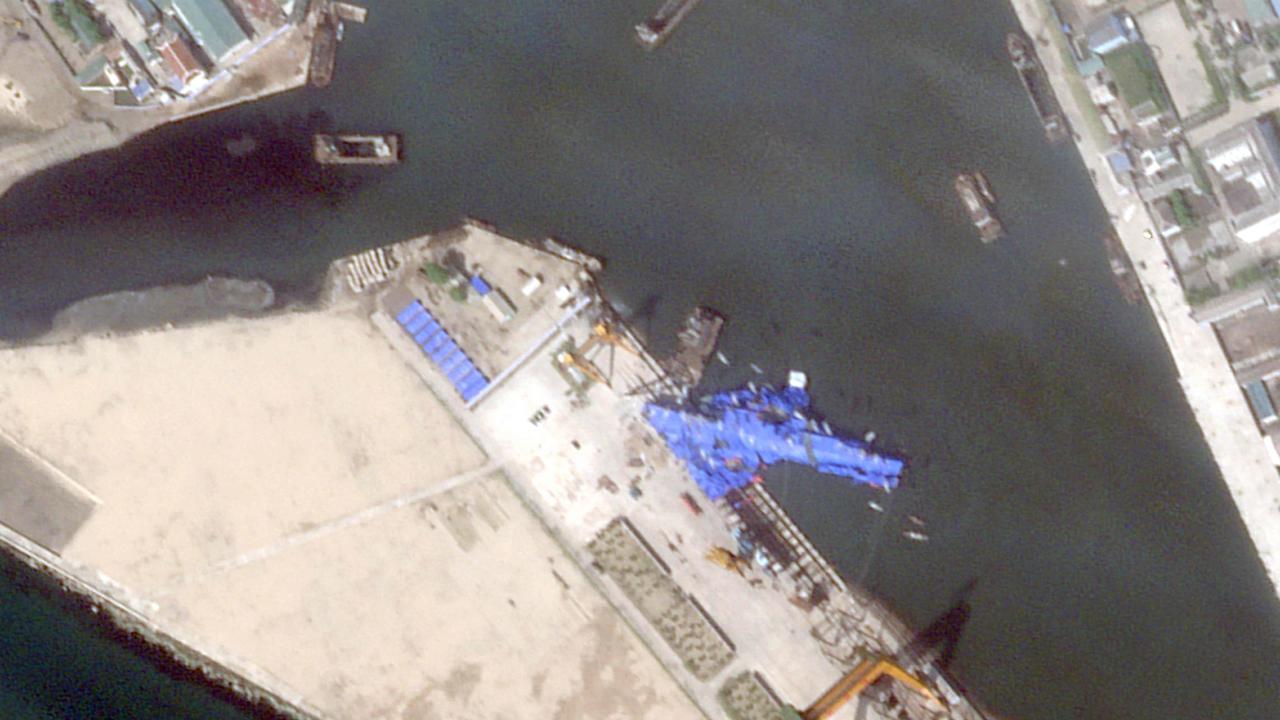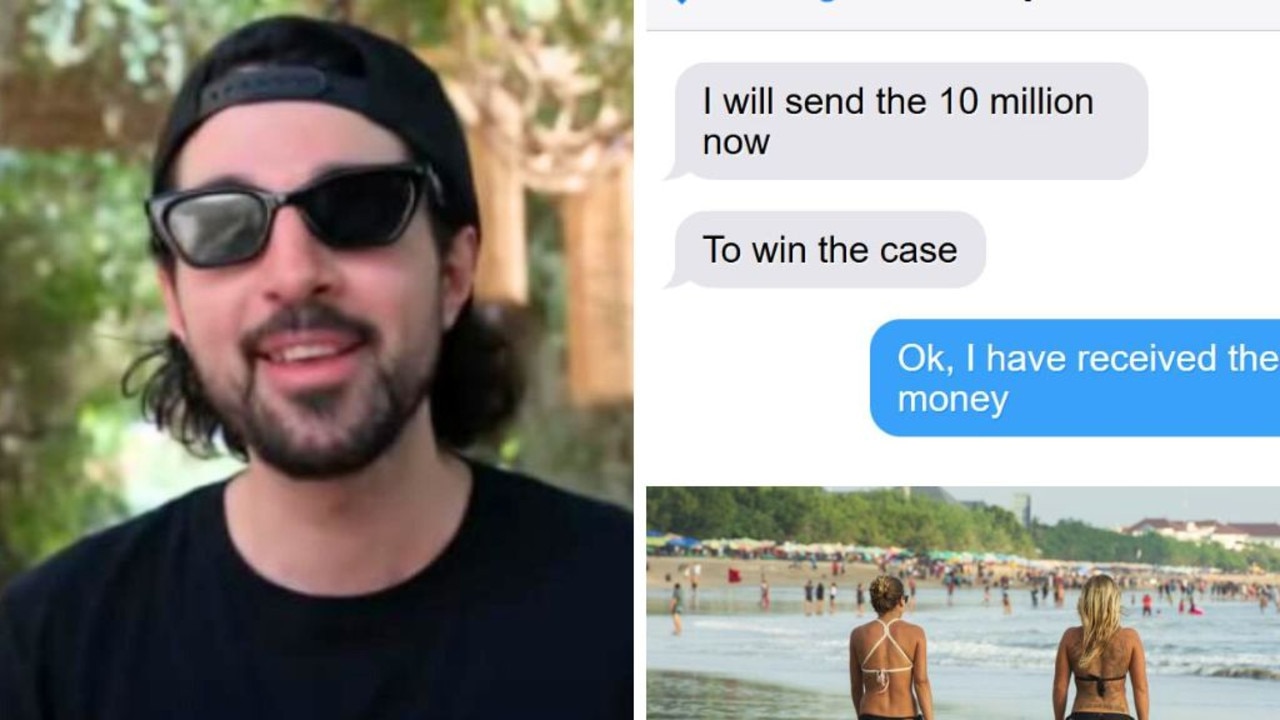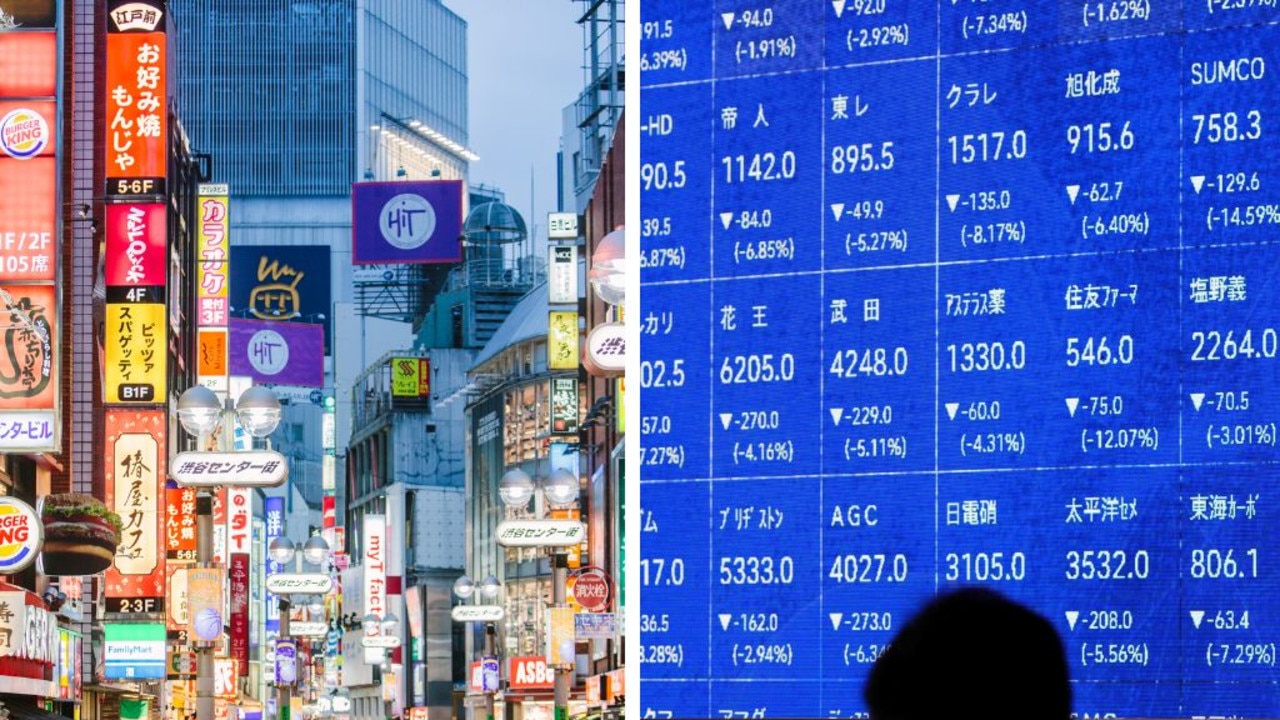Hong Kong protests: Why people are fighting for democratic freedom from China
AS VIOLENT clashes between riot police and citizens paralysed one of the world’s financial hubs, there is one dark fear terrifying residents in Hong Kong.
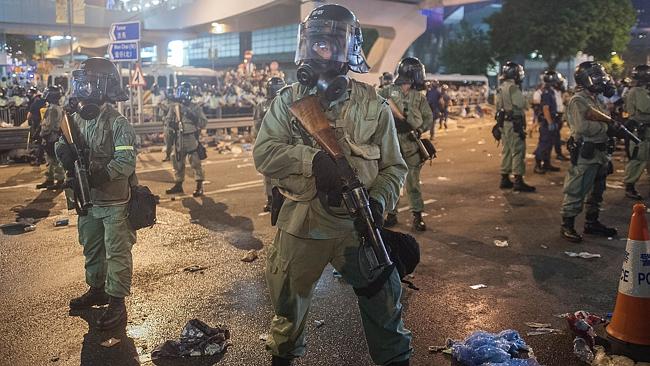
VIOLENT protests and riots in Hong Kong have the potential to erupt into another Tiananmen Square if things are not brought under control, a former Ambassador has warned.
Ambassador Richard Broinowski, who served in Vietnam and South Korea said while “no one really has a crystal ball” about how the situation in Hong Kong will play out, it could get heavy handed.
MORE: Hong Kong erupts in violent protests
“Worst case scenario you could have another Tiananmen Square massacre. I don’t think that would happen, the Chinese would have more judgment than that. If the population in Hong Kong continues to resist there’s going to be standoff. How long we just don’t know.”
Overnight, Hong Kong’s business district known as Central — usually an orderly international hub through which billions of dollars flow each day — erupted into mass protests which were brutally crushed by authorities in a night of dramatic violence.
At the heart of the issue is the bizarre relationship between Hong Kong and China, and fears of a dark past that no one wants to see again.
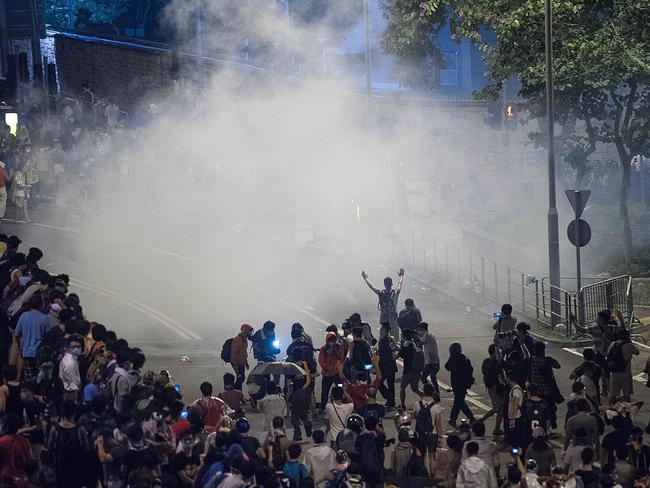
WHEN DID IT ALL BEGIN?
The protests began last week when students started boycotting classes and said they would keep doing so until officials withdraw a key rule relating to an upcoming election.
They were joined by activists from Occupy Central and ordinary citizens, culminating in a violent eruption last night where 10,000 took to the streets and were met with brutal force from heavily armed riot police.
Overall, 78 were arrested and 26 people hospitalised.
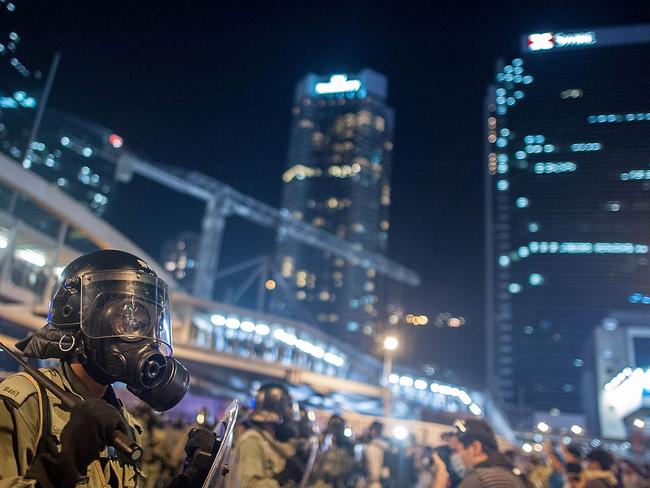

WHAT ARE THEY SO ANGRY ABOUT?
At the heart of the protests is the unusual relationship between Hong Kong and China.
For 150 years Hong Kong was run as a British colony, providing it with greater prosperity and democratic freedoms than those given to mainland Chinese. But in 1997 the city was ceded back to China, with China agreeing to a “one country, two system” policy that allows Hong Kong control of its own affairs in everything except defence and the military.
It also provided the right for Hong Kong to have democratic elections in 2017 where they could chose their own leader — known as universal suffrage.
The current Chief Executive Leung Chun-ying, chosen by a pro-Beijing committee, is deeply unpopular.
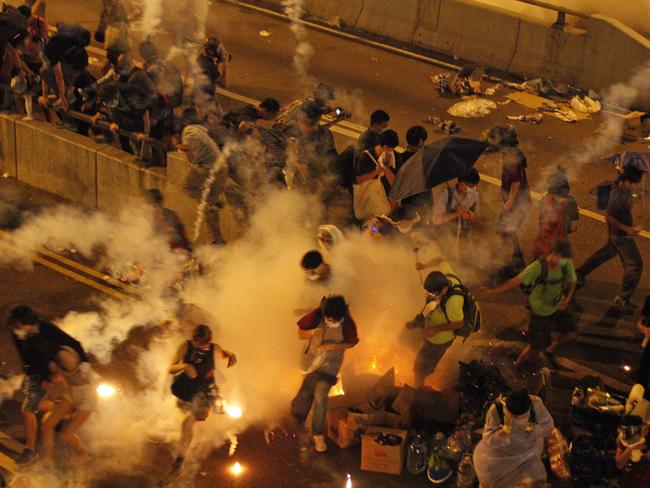
FEARS OF BEIJING’S CONTROL
Now, Hong Kong residents are starting to worry China will reneg on the deal.
It comes after Beijing published a white paper declaring that it had complete jurisdiction over Hong Kong and said it wants to be able to screen candidates voters can choose from in the election — prompting claims of a ‘fake democracy’.
Ambassador Broinowski said the move has to be seen in terms of China’s claims on other territory in the region including islands in the South China Sea.
“There’s a fair bit of unreality from China. All together it’s a bit of a mess,” he said.
“The Chinese government has become more and more disciplined [about the way] it is managing the country. It’s a huge country. The people in Beijing are very concerned about possible fragmentation of China. The mindset is Hong Kong is part of China, we’ll not permit it to have rampant democracy,” he said.
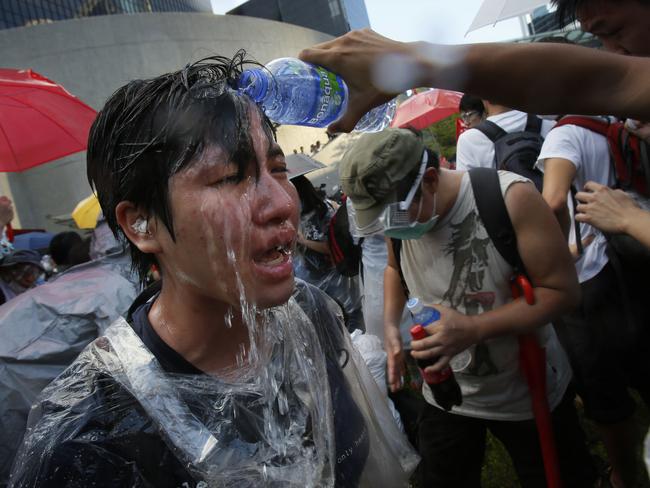
TERRIFYING MEMORIES
Last night’s crackdown is a terrifying moment for many in Hong Kong, haunted by the 1989 Tiananmen Square massacre where the Chinese government set military forces on pro-democracy protesters, estimating to have killed anywhere between several hundred to thousands of innocent people.
A recent opinion article in the Wall Street Journal said the international community has to share the responsibility to prevent such a thing ever happening again.
“While the Tiananmen Square massacre surprised the world, this time the world is on notice,” wrote three former political prisoners from China.
There are also reports China has blocked access to Instagram to stop people on the mainland seeing the protests.
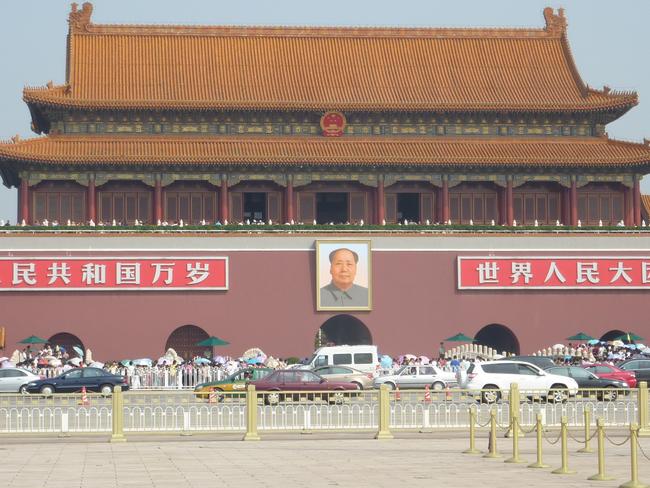
WHAT HAPPENS NEXT?
Protests have continued today, with major roads closed and more than 200 bus routes cancelled or diverted. The city’s subway is also paralysed.
Amid the chaos, Hong Kong’s Chief Executive Leung Chun-ying has tried to warn the public rumours the Chinese army might intervene are untrue.
“I hope the public will keep calm. Don’t be misled by the rumours. Police will strive to maintain social order, including ensuring smooth traffic and ensuring the public safety,” he said.
Meanwhile Occupy Central has issued a statement calling on Leung to resign, saying his “non-response to the people’s demands has driven Hong Kong into a crisis of disorder.” Co-founder Chan Kin-man has also said people should pull back from protests if they’re in danger.
“If their lives are threatened they should retreat and save their lives,” he said.
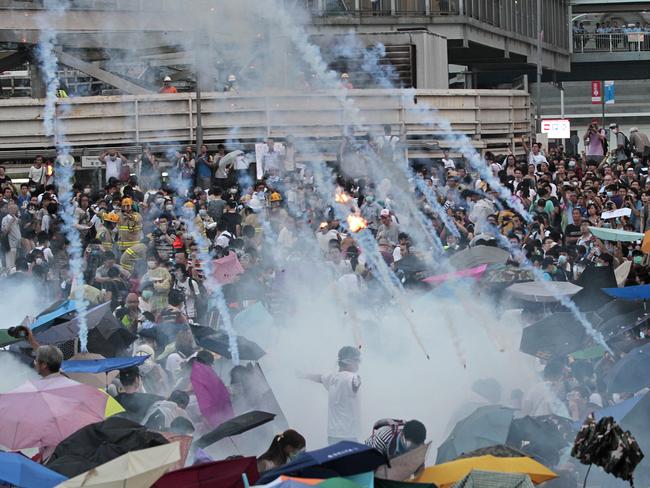
However others are vowing to stay for the “long fight”. Business and law student Edward Lau, 19, said: “I hope the blockade will continue tomorrow, so the whole thing will be meaningful.”
“The government has to understand that we have the ability to undo it if they continue to treat us like we are terrorists.”
Demonstrations will also be held across Australia tomorrow.

